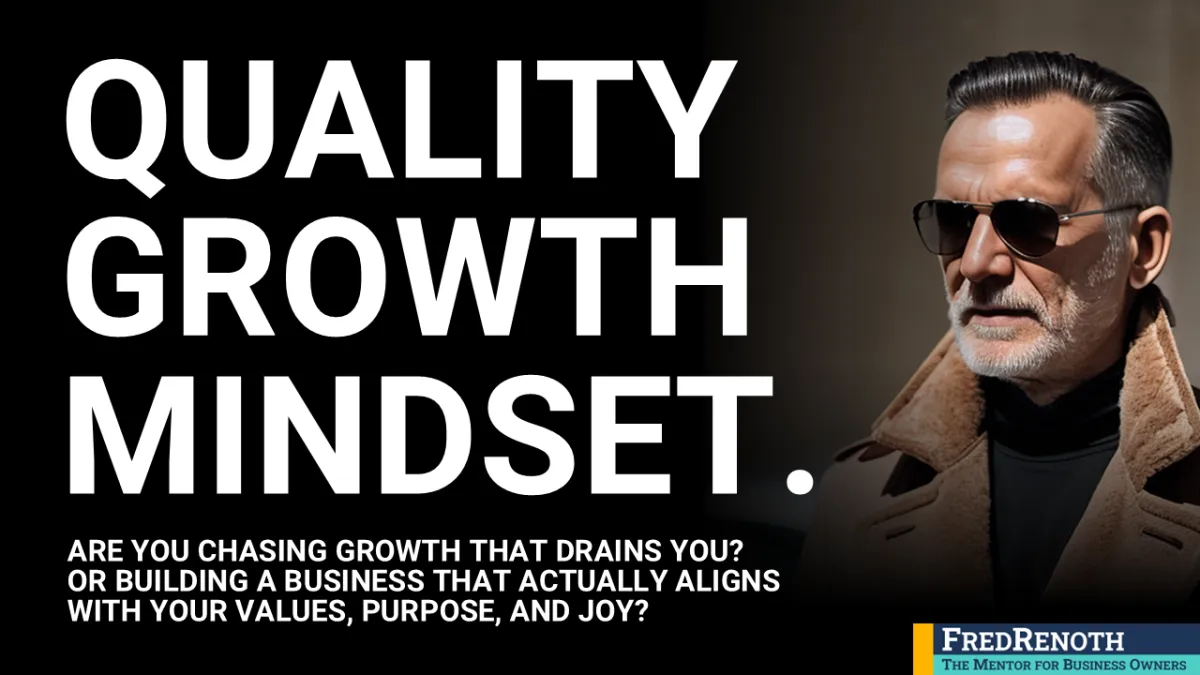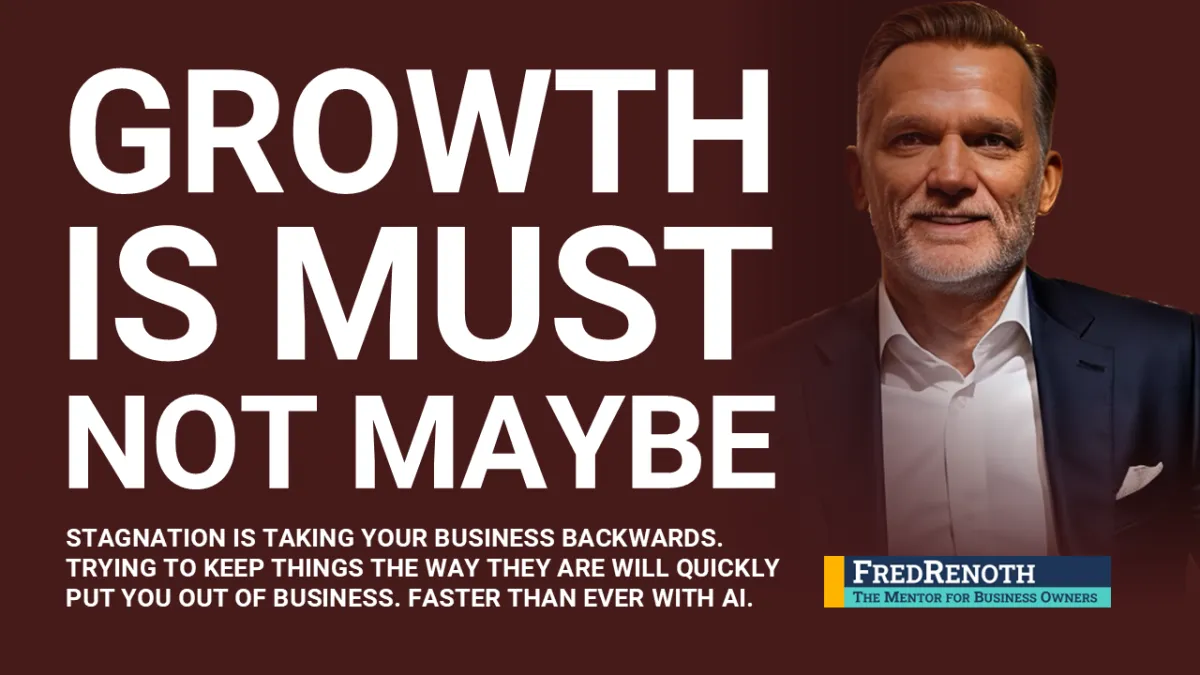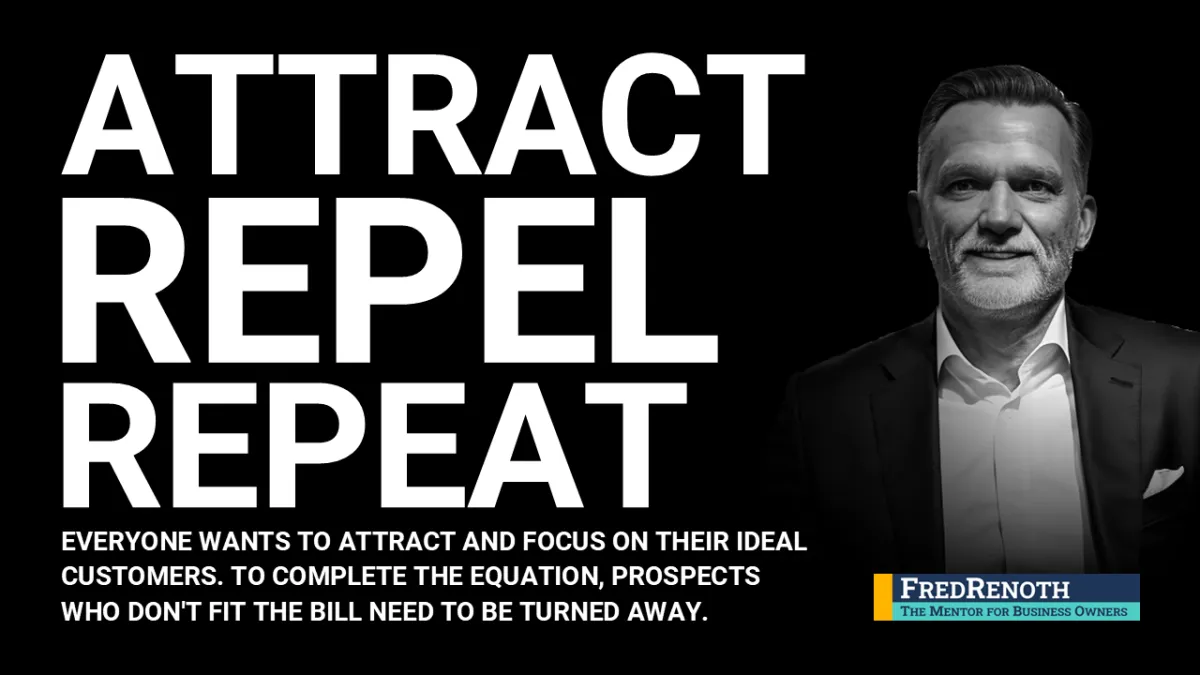


Welcome to Fred's
the Healthy Business BLOG

Burned out or Fired up? 3 Ways Leaders Can Beat Stress
In today's fast-paced business world, leaders face immense pressure to perform. Stress can sap a leader's energy, focus, and ability to inspire others. However, by adopting effective stress management techniques, leaders can improve their well-being and productivity. This article explores powerful strategies-mindfulness practices, effective delegation, and achieving work-life balance-to help leaders thrive.
The real reason most leaders burn out David sat in his car for twenty minutes before coming into the office. Emails were piling up, he had a quarterly board presentation due, and he hadn't slept a full night in weeks. He wasn't new to this. As a company founder, he had dealt with investor calls, product launches, and even near bankruptcy. But this? This constant low-grade exhaustion was starting to feel permanent.
If you're in any kind of leadership position, you probably know this feeling.
Leadership is exhilarating-but it can also be draining. When the pressure is relentless, stress doesn't just nibble at the edges of your well-being. It attacks your focus, your decision-making, your energy level-and ultimately your performance.
Why High Performers are Often the Most at Risk for Burnout
And that's why stress management is not a soft skill-it's a survival strategy. Not just for you, but for your entire organization.
The role of nutrition in a healthy leadership lifestyle You may not think of nutrition when you think of stress management, but food affects everything from your emotional regulation to your clarity in the boardroom.
A 2022 study published by the American Psychological Association found that 38% of adults who reported poor eating habits also reported higher levels of stress. Executives in particular tend to skip meals, rely on caffeine or sugar, or eat late into the night.
This affects blood sugar levels, energy stability, sleep quality and, most importantly, your ability to manage the emotional roller coaster of business leadership.
A strong nutritional foundation helps stabilize mood and cognitive function, sustain energy throughout the day, support restful sleep and hormone balance, and increase resilience to stress hormones like cortisol.
What does this look like in practice? Nutritious whole foods that are high in fiber, healthy fats, lean protein, and complex carbohydrates.
The Cost of Neglecting Healthy Habits
Executives often say: "I don't have time." But what they're really saying is, "I'm putting everything else ahead of my health.
The consequences? Huge. Lack of sleep, fast food, chronic tension, and overwork don't just make you cranky-they physically change the structure of your brain, shrinking the prefrontal cortex (responsible for decision-making) and enlarging the amygdala (responsible for fear and emotional reactivity).
This creates a downward spiral: Poor eating and sleeping leads to poor concentration. Poor focus leads to bad decisions. Bad decisions lead to more stress. More stress leads to bad habits. And the cycle continues.
According to Gallup's 2023 State of the Global Workplace report, 44% of employees say they experience significant stress "most of the day," and that number is higher among managers and executives.
So what should you avoid? Skipping meals. Relying on caffeine instead of sleep. Eating processed foods with added sugar. Ignoring hydration. Treating sleep as optional. Working 10+ hours without exercise.
Let's be clear: Your body is not a robot. If you treat it like one, it will crash - often at the worst possible time.
The Solution - How the Best Leaders Manage Stress
It's 6:45 in the morning. The office is quiet. Sam, a regional VP at a logistics company, is sitting at his desk-not typing, not checking email. Just breathing. Five slow, deliberate breaths in and out. It's part of a ritual he started months ago. It only takes five minutes. But it has changed everything.
Before this habit, Sam was a wreck-grinding through 70-hour weeks, snapping at his team, sleeping four hours a night. Then, during a leadership retreat, he discovered mindfulness. Not yoga, not incense, not spiritual lectures. Just the ability to be where your feet are.
It turned out to be the key to a better life-and a stronger team. Stress is inevitable. But how we respond to it is what separates burnout from breakthrough.
Let's break down three powerful, proven techniques every leader needs.
Mindfulness
Rewiring Your Brain for Calm and Clarity Mindfulness isn't just a wellness trend-it's neuroscience. Harvard researchers found that practicing mindfulness for as little as eight weeks can physically change the brain, increasing gray matter in areas responsible for emotion regulation and decreasing the volume of the amygdala, which triggers stress responses.
What does that mean in real life? It means that you can go from being reactive to being responsive. From spiraling in panic to leading with poise.
Try this: Before your next big meeting, sit quietly for 60 seconds. Close your eyes. Breathe slowly. Just notice your breath coming in and out. If your mind wanders, gently bring it back. That's it.
Studies by the American Psychological Association show that mindfulness can improve attention, reduce anxiety, and increase resilience-especially in high-pressure leadership roles.
In fact, Fortune 500 companies like Google and Intel now offer in-house mindfulness programs. Why? Because leaders who think clearly make better decisions.
Delegation
Trust Others to Take the Wheel One of the most common causes of leadership burnout is this lie: "If I want it done right, I have to do it myself.
Let's bust this myth. Delegation is not about relinquishing control. It's about gaining leverage.
When leaders fail to delegate, they become the bottleneck. Tasks pile up. Energy drains. And over time, frustration grows-not just for you, but for your team, who never get a chance to step up.
According to a Gallup study, CEOs who delegate effectively generate 33% more revenue than those who don't. Why? Because they spend more time on strategy, vision, and people-the work that only they can do.
Take Olivia, a startup COO who was headed for burnout until her mentor forced her to list every task she completed in a week. The list was two pages long. Half of them didn't require her skills. She began to delegate. At first, she was nervous. But her team rose to the challenge-and her business took off.
Remember, delegation is a sign of leadership, not weakness.
Work-life Balance
Don't Just Recharge-Stay Charged Work-life balance has become a buzzword. But let's break it down: balance means having space in your life for rest, joy, and connection.
Without it, leadership becomes a treadmill. You may be moving fast, but you're not going anywhere meaningful.
A 2022 study by Deloitte found that 70% of C-suite executives would consider quitting for a job with a better work-life balance. It's not just about long hours - it's about lack of purpose, flexibility and recovery.
Want to be a better leader?
Start protecting your off-hours as fiercely as you protect your calendar. That means no laptop in bed. No "quick check-ins" while on vacation. No guilt for not working every weekend.
It also means integrating your personal values into your work schedule. For example, schedule family dinners like business meetings. Build exercise time into your work calendar.
Use your PTO (yes, all of it). You're not a machine. Even machines need downtime - or they overheat and break down.
From Idea to Action - the Plan that Actually Works
Knowing what to do is one thing. Doing it? That's where most leaders struggle.They read the books. You attend the workshops. You nod when someone tells you to "breathe more" or "slow down.
But then Monday hits like a freight train-and suddenly mindfulness, delegation, and work-life balance feel like luxuries for people with smaller calendars.
Here's the truth: You don't need a total life overhaul. You need a few small changes that add up over time.
This 5-point action plan is designed for busy leaders like you. It's simple. It's realistic. And it works-if you apply it.
Action Step 1: Start with Five Minutes of Mindfulness
That's it. Just five minutes. No apps, no classes, no incense.
Just sit. Breathe in. Focus on the air going in and out of your nose. If your mind wanders (it will), bring it back. Gently. Again and again.
Why it works: You're training your brain to stay present under pressure. Over time, this builds mental muscle-the kind you need when your inbox explodes or an investor threatens to pull funding.
Action Step 2: Delegate One Task Today
Yes, just one. Take a look at your to-do list. Find something you're holding on to out of habit or fear-and delegate it.
This isn't about dumping. It's about trust and growth. The act of delegation sends two powerful signals: you believe in your team and you believe in your time.
Action Step 3: Create a "No Work" Zone
Pick a space in your life that becomes work-free. No laptop. No slack. No "just a quick reply." It could be your dining room table, your bedroom, or the first hour after you wake up.
When you create a sacred space for non-work, your brain learns to shift gears. You rest better. You recover faster.
Action Step 4: Move Your Body Every Day
Don't overthink this. You don't need a gym. Just move. Walk for 15 minutes. Stretch. Do pushups. Take your kids dancing. Exercise releases endorphins and lowers cortisol. It also improves mood, focus, and creativity.
Action Step 5: Talk to another leader
Leadership can be lonely. But it doesn't have to be isolating. Grab a coffee. Book a zoom. Join a mastermind. When leaders connect with other leaders, courage returns.
Small Changes → Massive Results
There's no magic bullet for stress. But there is momentum. These five actions don't take a lot of time. But they build. They stack up. They multiply.
Start Today. Start Small. Start Now.
What kind of leader do you want to be? You don't have to wait for a breakdown to break through. Stress will always be knocking on your door. The question is: will you open it? or will you take control?
Make the shift. Take a breath. Delegate. Disconnect. Move. Connect. Lead from a place of strength-not strain.
And remember, your well-being is your advantage.
Want to Take it a Step Further?
Enjoyed this article?
It may give you a taste of what we talk about with our clients in the FredRenoth Mentoring Program.
Check out our website (CLICK HERE FOR WEBSITE).
And, of course, I'm ready to answer all your questions in a Value Call. Just click the button below.
Like What you Read?
Get my weekly updates sent straight to your inbox. Just CLICK HERE to sign up.
Copyright 2025 Sysbizz LLC - All Rights Reserved
















